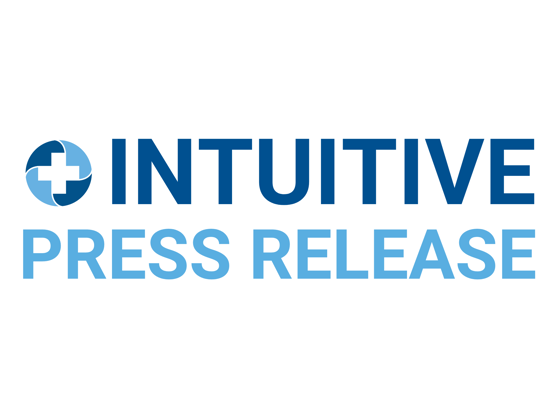A Customer-Centric Focus in Healthcare
- Category: Consumer Health
- Posted On:
.png)
The time has come for the healthcare industry to shift its focus and become customer-centric. The traditional healthcare model, which historically centered on the provider and their expertise, is no longer sufficient to meet the expectations and demands of modern patients. With technological advancements, easy access to information and a consumer-driven mindset, patients now expect a more personalized, convenient and satisfying healthcare experience. This paradigm shift requires healthcare organizations to prioritize their customers' needs, preferences and overall satisfaction, placing them at the center of care.
Traditional healthcare models often view patients more as recipients of care rather than customers. However, there has been a growing movement towards adopting a customer-centric approach in healthcare, where patients are seen as customers - active participants in their healthcare journey and are provided with services and experiences that align with their needs and preferences.
In this context, the term "customer" emphasizes the importance of delivering high-quality care, meeting patient expectations, and creating positive patient experiences. It recognizes the significance of patient satisfaction, engagement, and loyalty, similar to how retail businesses value their customers. This perspective encourages healthcare providers to focus on aspects such as service excellence, communication, patient empowerment and personalized care.
What Does It Mean To Be Customer-Centric?
When a brand has a customer-centric focus, it places the customer at the center of all its business decisions, strategies and operations. It involves prioritizing customers' needs, preferences and overall satisfaction in every aspect of the organization's activities. A customer-centric approach focuses on understanding and anticipating customer expectations, delivering personalized experiences and building strong, long-lasting customer relationships. Furthermore, customer-centered care necessitates proactive efforts from healthcare organizations and professionals to comprehend and truly grasp patients' values and preferences.
Customer-Centric Requirements
A Customer-centric approach requires a deep understanding of customers' wants, pain points and preferences through research, data analysis and customer insights. It involves aligning internal processes, culture and employee behaviors to provide the best possible customer experience. Ultimately, a customer-centric approach aims to build customer trust, loyalty and advocacy, driving business growth and success in a highly competitive marketplace.
Why Is A Customer-Centric Approach Important?
A customer-centric approach is widely recognized as key to delivering high-quality healthcare due to its positive impact on outcomes. Research indicates that patient-centric care fosters trust and reduces the likelihood of patients switching physicians, promotes continuity of care and leads to better patient outcomes.
Advantages of a customer-centric healthcare approach include:
- Enhanced patient satisfaction
- Improved patient outcomes.
- Increased patient loyalty.
- Differentiation in a competitive market.
- Enhanced organizational performance.
- Enhanced employee satisfaction.
- Financial benefits of a customer-focused approach.
Customer-Centric Benefits
A customer-centric focus has emerged as a key driver of success for organizations. By placing patients at the center of their operations, healthcare providers can deliver exceptional experiences, improve patient outcomes and foster a culture of continuous improvement. A customer-centric focus in healthcare brings numerous benefits to patients, employees and organizations, including:

Enhanced Patient Satisfaction
Enhanced patient satisfaction is a critical benefit of a customer-centric focus in healthcare. By prioritizing the needs and preferences of patients, healthcare organizations create an environment where patients feel valued, respected and empowered. This approach goes beyond delivering high-quality medical care and extends to every aspect of the patient's journey, from scheduling appointments to receiving follow-up care.
Effective Communication
Clear and effective communication is a key component of a customer-centric approach. Healthcare organizations that prioritize patient satisfaction actively listen to patients, provide clear explanations and encourage open dialogue. This fosters trust, reduces anxiety and enhances overall patient satisfaction.
Empowered Decision-Making
A customer-centric focus empowers patients to participate in their care actively. By involving patients in the decision-making process and providing them with relevant information, healthcare organizations enable patients to make informed choices. This sense of empowerment enhances patient satisfaction and improves treatment outcomes.
Seamless Care Coordination
A customer-centric approach ensures seamless care coordination across different healthcare settings and providers. Healthcare organizations create a cohesive and coordinated patient care experience by streamlining communication and sharing information effectively. Seamless care coordination reduces redundancies, delays and frustrations, resulting in higher patient satisfaction.
Patient-Centered Facilities and Amenities
A customer-centric focus extends beyond medical care to the physical environment and amenities. Healthcare organizations that prioritize patient satisfaction invest in creating welcoming and comfortable facilities. This includes amenities such as pleasant waiting areas, convenient parking and easily accessible resources. Organizations enhance the overall patient experience and increase patient satisfaction by attending to these details.
.png)
Improved Patient Outcomes
A customer-centric approach in healthcare emphasizes personalized and tailored care, which can lead to better patient outcomes. When healthcare providers understand and address each patient's unique needs, they can deliver more effective treatments and interventions, resulting in improved health outcomes.
Personalized Treatment Plans
A customer-centric approach ensures that healthcare providers develop personalized treatment plans for each patient. By considering individual needs, preferences and circumstances, healthcare providers can tailor interventions and therapies to maximize patient outcomes.
Targeted Interventions
Customer-centric healthcare focuses on addressing the specific needs and challenges of each patient. By implementing targeted interventions, healthcare providers can effectively address underlying issues, leading to improved patient outcomes and a higher quality of care.
Preventive Care and Education
A customer-centric focus emphasizes preventive care and patient education. By empowering patients with knowledge and promoting proactive measures, healthcare providers can help prevent complications, manage chronic conditions and improve overall health outcomes.
Patient Engagement and Collaboration
A customer-centric approach encourages patient engagement and collaboration in decision-making. By involving patients in their care plans, healthcare providers promote a sense of ownership and accountability, leading to increased adherence to treatment and better patient outcomes.
.png)
Increased Patient Loyalty
By focusing on customer satisfaction and delivering exceptional experiences, healthcare organizations can foster patient loyalty. Satisfied and loyal patients are more likely to return to the same provider for future healthcare needs, refer others to the organization and speak positively about their experiences.
Intuitive Health has implemented a compelling approach to foster patient loyalty by adopting a mindset that considers new patients as patients for life. When healthcare providers approach each interaction with the understanding that they are establishing a long-term relationship, they prioritize building trust, fostering open communication and delivering personalized care. By consistently providing exceptional experiences and meeting patients' evolving needs, healthcare organizations can create a strong bond with their patients, increasing the likelihood of continued engagement and loyalty.
Exceptional Experiences
By prioritizing customer satisfaction and delivering exceptional experiences, healthcare organizations can create a lasting impression on their patients. Going above and beyond in every interaction leaves a positive impact and fosters patient loyalty.
Builds Trust
A customer-centric focus emphasizes building trust with patients. Through open communication, transparency and consistently meeting patient expectations, healthcare providers can establish a strong trust foundation, leading to increased patient loyalty.
Continuity of Care
Continuity of care can increase patient loyalty by establishing trust, improving communication and delivering consistent, personalized care that meets patients'patients' unique needs over time. Healthcare organizations develop a sense of reliability and loyalty by providing ongoing support, follow-up care, and maintaining long-term relationships with patients.
Patient Engagement
A customer-centric focus encourages patient engagement, empowering patients to participate actively in their healthcare decisions. When patients feel involved, listened to and respected, they develop a stronger connection with their healthcare provider, increasing loyalty and commitment to the organization.
.png)
Differentiation in a Competitive Market
Today, competition among healthcare providers is fierce. A customer-centric focus allows healthcare organizations to differentiate themselves by delivering outstanding customer service, personalized care and positive patient experiences. This differentiation can attract new patients, retain existing ones and position the organization as a leader in the industry.
For example, for the past decade, Intuitive Health’s ER and urgent care facilities have been in the top 1% of global retailers for customer service. This validation creates a significant differentiation in a competitive market where customer expectations are continually rising. Intuitive Health promotes exceptional customer service at every customer interaction from every team member – setting themselves apart from their competitors.
It showcases their commitment to prioritizing patient satisfaction, building strong relationships and exceeding expectations. This reputation for exceptional customer service becomes a key differentiator influencing patient decisions when choosing a healthcare provider.
.png)
Enhanced Organizational Performance
A customer-centric focus in healthcare brings numerous benefits to healthcare organizations, ultimately leading to enhanced organizational performance. By prioritizing customer satisfaction, organizations can drive improvements in their operations, resulting in improved efficiency, cost savings and overall performance.
Process Optimization
A customer-centric approach requires healthcare organizations to closely examine their processes and workflows from the customer's perspective. By identifying pain points and areas for improvement, organizations can streamline processes, reduce inefficiencies and enhance the overall patient experience. Process optimization improves customer satisfaction, increases operational efficiency, and reduces costs.
Continuous Quality Improvement
Customer feedback is a valuable source of information for healthcare organizations to drive continuous quality improvement. By actively listening to customer feedback, organizations can identify areas where they can enhance their services, address gaps in care and implement necessary changes. This iterative process of improvement ensures that healthcare organizations are constantly evolving to meet their customers' changing needs and expectations, resulting in improved quality of care and patient outcomes.
Staff Engagement and Productivity
A customer-centric focus in healthcare empowers employees by recognizing the importance of their role in delivering exceptional customer experiences. When employees feel valued, engaged and supported in providing customer-focused care, it translates into higher levels of productivity and job satisfaction. Engaged employees are more likely to go the extra mile, proactively identify opportunities for improvement and contribute to the organization's overall success.
Reputation
Healthcare organizations prioritizing customer satisfaction and delivering exceptional experiences build a positive reputation in the market. A strong reputation as a customer-centric organization attracts new patients and helps retain existing ones. Patients are more likely to choose healthcare providers with a reputation for excellent customer service, leading to increased market share and a competitive advantage over other organizations.
.png)
Enhanced Employee Satisfaction
A customer-centric focus in healthcare has a profound impact on employee satisfaction. When healthcare organizations prioritize customer-centric values and create a culture that empowers employees to deliver exceptional care, it fosters a positive work environment that significantly enhances employee satisfaction.
Empowerment and Autonomy
A customer-centric approach involves empowering employees to make decisions and take ownership of the customer experience, ensuring team engagement. When employees feel trusted and empowered to make decisions that benefit the customer, it boosts their confidence and job satisfaction. Empowered and engaged employees have a sense of autonomy in their roles, allowing them to provide personalized and exceptional care to patients.
Recognition and Appreciation
Recognizing and appreciating employees' contributions in delivering exceptional customer experiences is crucial. When organizations value and acknowledge employees' efforts, it fosters a sense of pride and fulfillment. Regular recognition programs and rewards for outstanding customer service create a positive and supportive work culture that motivates employees to go above and beyond for their patients.
Professional Growth and Development
A customer-centric focus involves investing in employee growth and development. Healthcare organizations prioritizing continuous learning and providing opportunities for professional development create a stimulating work environment. By offering training programs and mentorship, and career advancement opportunities, organizations show their commitment to employee growth.
Reduced Turnover and Increased Engagement
Employees feeling valued in their work reduces turnover rates and increases employee retention. Satisfied and fulfilled employees are more likely to stay with the organization, leading to improved continuity of care and stronger patient-provider relationships. Reduced turnover also reduces recruitment and training costs for organizations.
Teamwork and Collaboration
A customer-centric focus encourages teamwork and collaboration among employees. When organizations prioritize the needs and preferences of the customer, it necessitates effective communication and cooperation between different teams and departments. This collaborative work environment enhances the overall patient experience and fosters a sense of camaraderie and teamwork among employees, leading to improved job satisfaction and positive work culture.

Financial Benefits of a Customer-Focused Approach
In addition to the numerous advantages for patients and employees, a customer-focused approach in healthcare also brings significant financial benefits. By prioritizing customers' needs and satisfaction, healthcare organizations can experience improved financial performance and long-term revenue growth.
Reduced Patient Churn
A customer-focused approach helps reduce patient churn, which refers to patients switching to other healthcare providers. When patients have positive experiences and feel their needs are met, they are more likely to remain loyal to the organization. By fostering strong patient relationships, healthcare providers can retain their patient base and reduce the costs associated with acquiring new patients.
Increased Patient Referrals
Satisfied customers are more likely to refer others to the healthcare provider. Word-of-mouth recommendations have a significant impact on attracting new patients. Organizations can generate positive word-of-mouth marketing by delivering exceptional experiences and exceeding patient expectations, leading to increased patient referrals and organic growth.
Timely Payments and Reduced Financial Barriers
A customer-focused revenue model prioritizes building trust and loyalty with patients. Organizations can remove financial barriers and create a transparent payment process by eliminating or minimizing hidden fees, unnecessary charges, and late fees. This enhances the patient experience, increases patient satisfaction and promotes timely payments, resulting in improved cash flow and reduced administrative costs.
Long-Term Revenue Potential
While a revenue-focused approach may focus solely on short-term financial gains, a customer-focused revenue model recognizes the value of customer loyalty and long-term revenue potential. By prioritizing the needs and preferences of customers, organizations can build strong relationships and foster loyalty. Satisfied customers are more likely to continue seeking healthcare services from the organization, resulting in sustained revenue growth over time.

Customer-Centric Mindset Becomes an Organizational Priority vs. Departmental Priority
Healthcare providers align their mission, vision, values, leadership, and quality improvement efforts with a focus on customer-centered goals.
Just look at Intuitive Health.
Mission:
To set the standard of excellence for care, service, and fairness in our communities.
Values:
Servant Leadership | Teammates doing more for others than is expected in return.
Patient-Centric | Without loyal patients, we do not exist.
Continuous Improvement | Never complacent, always improving.
Teamwork | Caring for and supporting each other in achieving your common goal.
Integrity | We say what we believe and do what we say.
Commitment | Consistently execute with passion regardless of obstacles.
Compassion | For patients, community, and each other.
A customer-centric focus in healthcare ensures that taking care of the customer becomes the responsibility of every single staff member. It emphasizes the importance of providing personalized and exceptional care to meet each patient's unique needs and preferences. Regardless of their role within the organization, every staff member is empowered and accountable for delivering an outstanding customer experience.
By adopting a customer-centric mindset, healthcare organizations create a culture where every staff member understands their important role in ensuring patient satisfaction and well-being. From frontline healthcare providers to administrative staff and support teams, everyone is encouraged to prioritize the customer's needs and go above and beyond to exceed their expectations.
This customer-centric approach promotes a sense of ownership and accountability among staff members. It empowers them to actively listen to patients, anticipate their needs and address any concerns or challenges they may face. By taking a proactive approach to customer care, healthcare organizations can build strong patient-provider relationships, foster trust and loyalty and ultimately improve patient outcomes.


